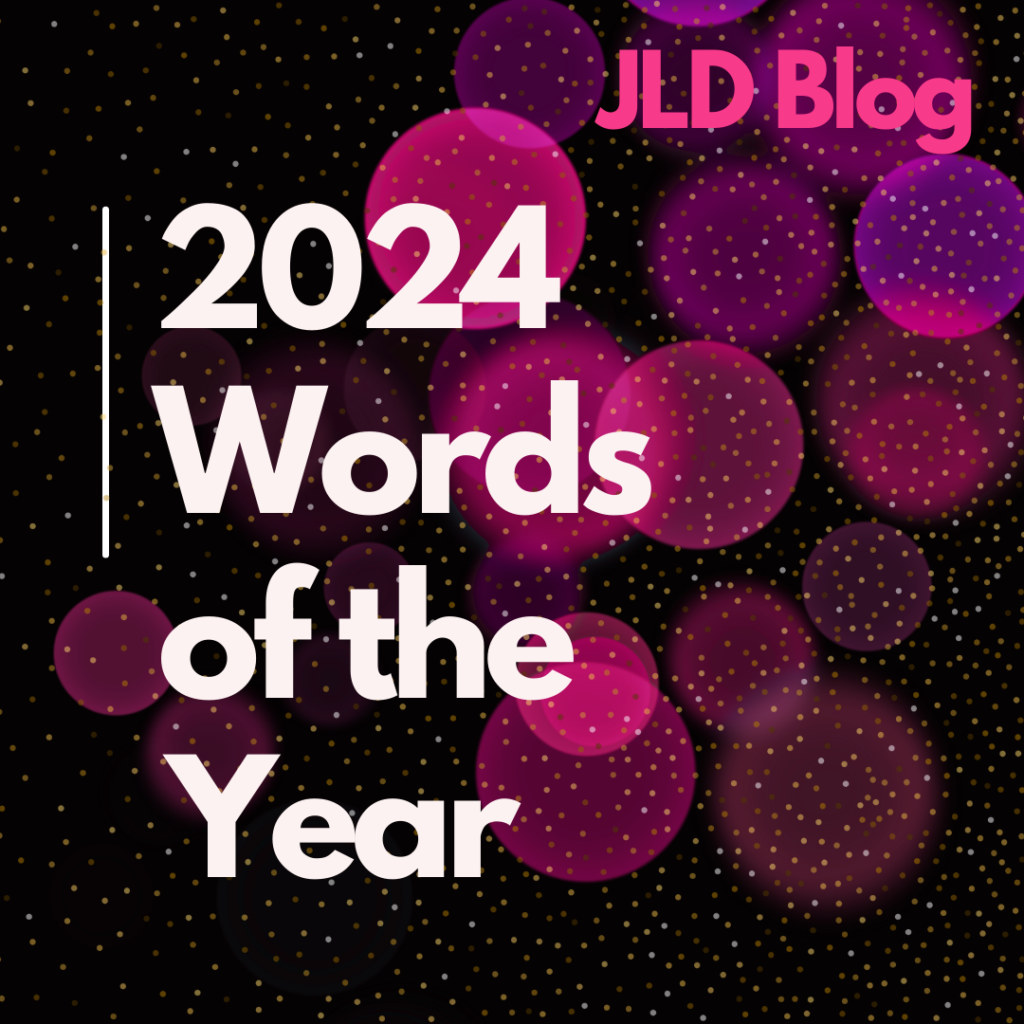
As the year winds down, dictionaries in the U.S. have been busy unveiling their Word of the Year for 2024. Let’s take a look at the English words that made it to the top of the word pack in 2024. (We’ll introduce the Japanese Word of the Year winners in a separate blog post.)
First up is the Oxford Word of the Year 2024.
brain rot
Brain rot (noun), as defined by Oxford, is:
“Supposed deterioration of a person’s mental or intellectual state, especially viewed as a result of overconsumption of material (now particularly online content) considered to be trivial or unchallenging. Also: something characterized as likely to lead to such deterioration.”
Oxford explains its decision as follows.
“Our experts noticed that ‘brain rot’ gained new prominence this year as a term used to capture concerns about the impact of consuming excessive amounts of low-quality online content, especially on social media. The term increased in usage frequency by 230% between 2023 and 2024.”
Interestingly, brain rot is not actually a term coined in the digital age. According to Oxford, “The first recorded use of ‘brain rot’ was found in 1854 in Henry David Thoreau’s book Walden, but has taken on new significance as an expression in the digital age.”
https://corp.oup.com/word-of-the-year/
Next up is Merriam-Webster’s 2024 Word of the Year.
Polarization
Merriam-Webster defines polarization (noun) as follows.
“Division into two sharply distinct opposites; especially, a state in which the opinions, beliefs, or interests of a group or society no longer range along a continuum but become concentrated at opposing extremes.”
Merriam-Webster’s choice reflects the current political environment in the United States, but the word polarization was first used to describe the polarization of light in the early 1800s. This original meaning refers to filtering light so that it can only travel in a single plane. Polarized sunglasses, for example, filter out horizontal light and allow only vertical light to pass through. This reduces glare, which is why polarized sunglasses are often worn for outdoor pursuits.
https://www.merriam-webster.com/wordplay/word-of-the-year
Meanwhile, Cambridge Dictionary chose manifest for its Word of the Year 2024.
It defines manifest (the verb) as “to use methods such as visualization and affirmation to help you imagine achieving something you want, in the belief that doing so will make it more likely to happen.”
This meaning is newer than the more established meanings of the verb manifest, which are “to show something clearly, through signs or actions” and “to appear or become clear.”
Cambridge Dictionary further explains the new meaning of manifest as follows.
“When famous performers, star athletes, and influential entrepreneurs claim they have achieved something because they manifested it, they are using this verb in a more recent sense: to use specific practices to focus your mind on something you want, to try to make it become a reality.
The use of this sense of manifest has gained in popularity with the increasing number of ‘manifesting influencers’ promoting this scientifically unproven practice on social media—so much so that it was added to the Cambridge Dictionary in May of 2023.”
https://dictionary.cambridge.org/editorial/word-of-the-year
The folks at Collins Dictionary named yet another word as the Collins Word of the Year 2024.
brat
This is not the traditional meaning of the word brat, which Collins defines as “an impudent, unruly child” or “an annoying, spoiled, or impolite child.”
The new 2024 definition of “brat” is, according to Collins, “characterized by a confident, independent, and hedonistic attitude.” Collins explains its choice for Word of the Year 2024 as follows.
“Inspired by the Charli XCX album, ‘brat’ has become one of the most talked about words of 2024. More than a hugely successful album, ‘brat’ is a cultural phenomenon that has resonated with people globally, and ‘brat summer’ established itself as an aesthetic and a way of life.”
https://www.collinsdictionary.com/us/woty#google_vignette
As brain rot and the new meanings of manifest and brat show, many of the Word of the Year choices come from online slang and pop culture trends. Are you familiar with the meaning and current usage of the 2024 word winners? Have you used or come across these words in your work? Do you think these words will stand the test of time?
Author: Syra Morii
Edited by: Audra Lincoln


Leave a Reply